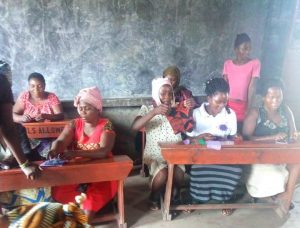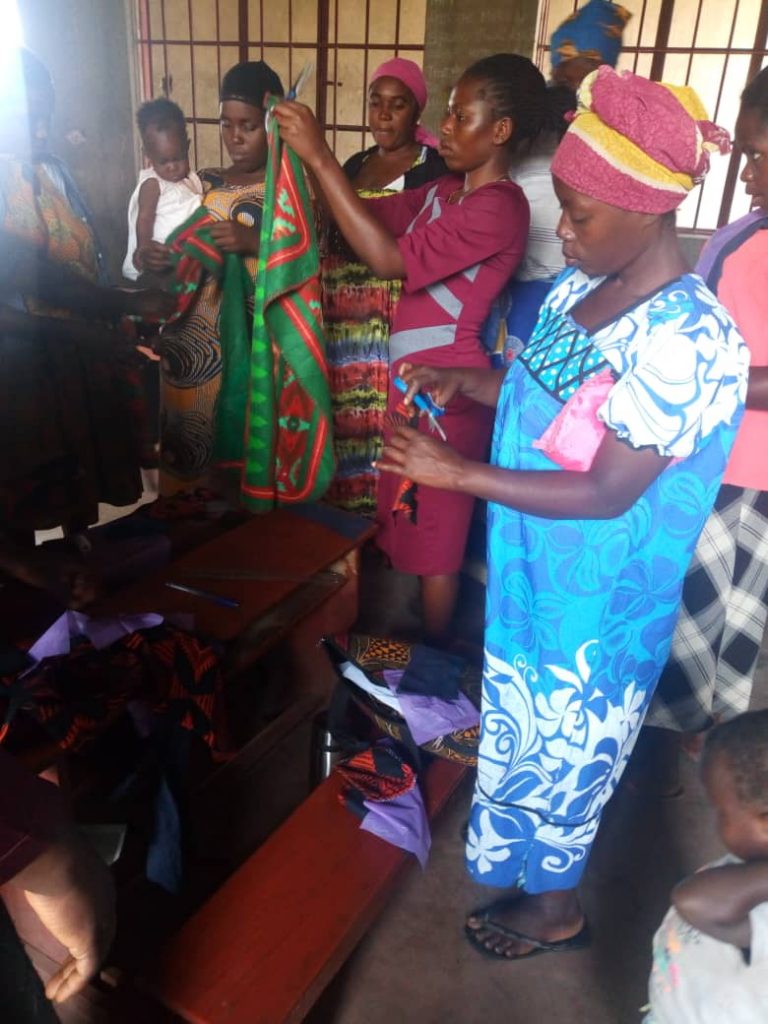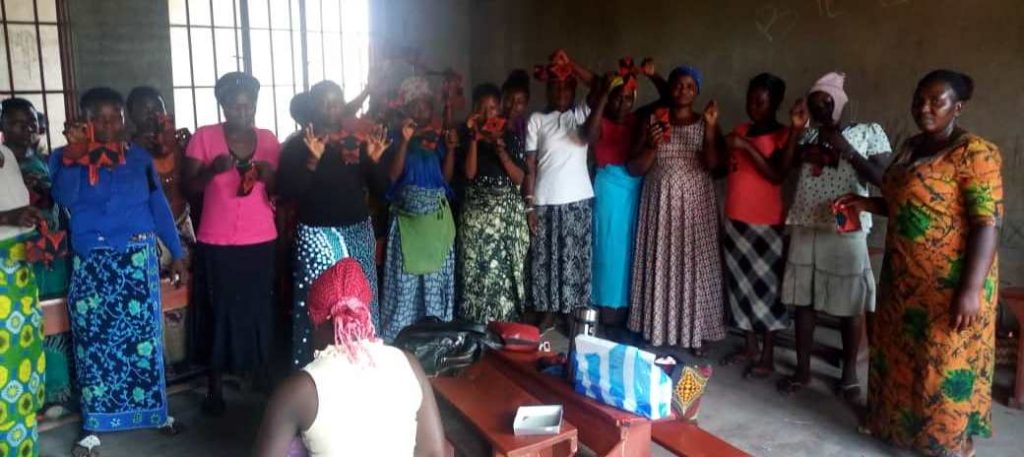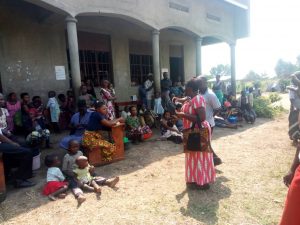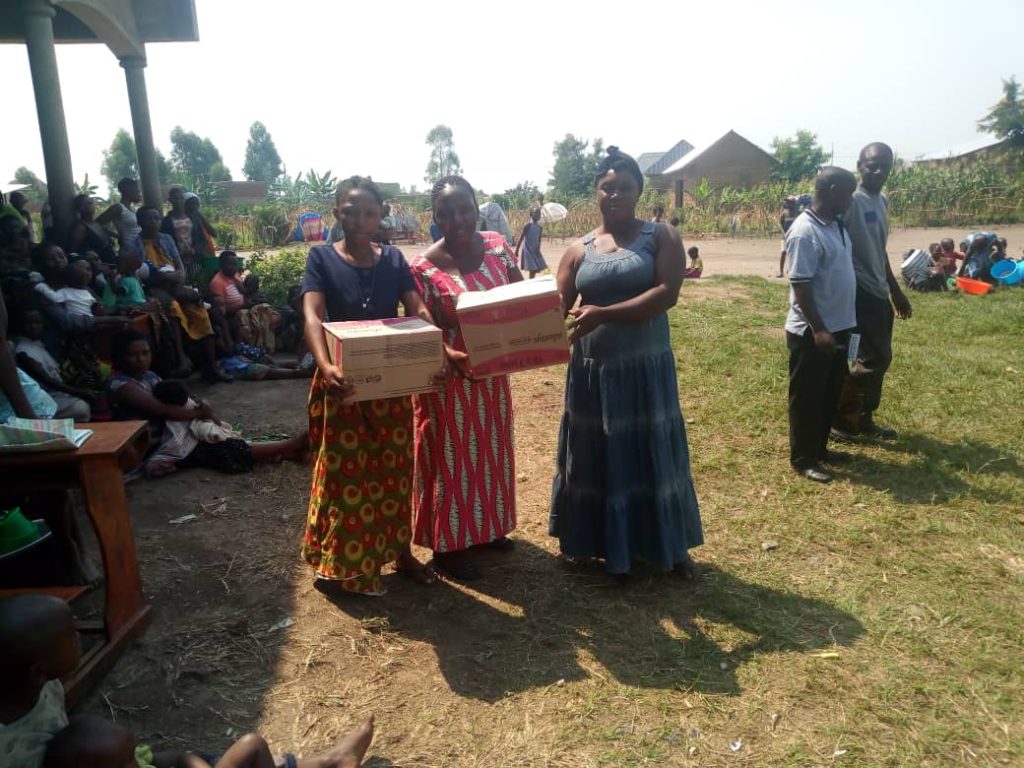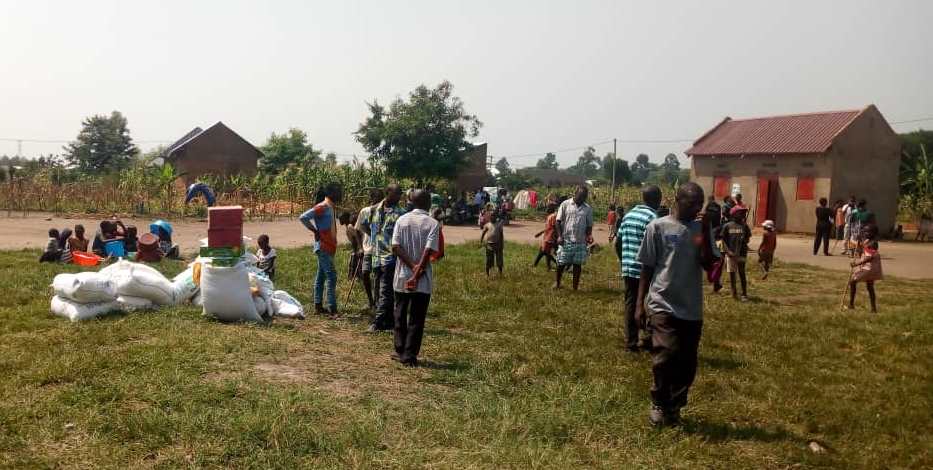REFLECTION ON BREASTFEEDING AND THE ENVIRONMENT: Every year, the globe commemorates the World breastfeeding week in the first week of the month of August. This week, Uganda Joins other parts of the world in commemoration of the world breast feeding week that starts today the 1st August through 7th of August 2020 reflecting on a national theme “Safe breastfeeding for a healthier nation”. This year's theme focuses on the impact of Breastfeeding on the environment and the obligation to protect, promote and Support safe breastfeeding for a healthier nation. World breastfeeding week has the dual goal of improving the health of babies and promoting, protecting, and supporting the rights of women to breastfeed anywhere and at any time. One could imagine why WBW commemoration? The WBW commemoration provides governments, international, national, community based and civil society organizations as well as all other stakeholders an opportunity to conduct massive advocacy and campaigns aimed at promoting, protecting and supporting breastfeeding. This comes along with activities that create awareness to communities on optimal breastfeeding practices, training of health care practitioners to provide support to mothers/parents in regard to appropriate breastfeeding, formulation and implementation of the legislations and policies concerning breastfeeding and breastmilk substitutes as well as reflecting on commitments towards achieving optimal breastfeeding practices and the SDGs. This year’s World Breastfeeding Week also highlights the huge benefits that breastfeeding can bring to the health and welfare of babies and to maternal health, focusing on good nutrition, poverty reduction, food security and protection of environment. From the reflection on the WBW theme, we recognize that breastmilk is a natural, renewable nutritious food that is produced and delivered to the consumer without pollution, packaging or waste as compared to breastmilk substitutes. One could also wonder why breastfeeding? Studies have revealed that breastfeeding is a universal solution that gives
REFLECTION ON BREASTFEEDING AND THE ENVIRONMENT:
 Every year, the globe commemorates the World breastfeeding week in the first week of the month of August.
Every year, the globe commemorates the World breastfeeding week in the first week of the month of August.
This week, Uganda Joins other parts of the world in commemoration of the world breast feeding week that starts today the 1st August through 7th of August 2020 reflecting on a national theme “Safe breastfeeding for a healthier nation”.
This year’s theme focuses on the impact of Breastfeeding on the environment and the obligation to protect, promote and Support safe breastfeeding for a healthier nation.
World breastfeeding week has the dual goal of improving the health of babies and promoting, protecting, and supporting the rights of women to breastfeed anywhere and at any time.
One could imagine why WBW commemoration?
The WBW commemoration provides governments, international, national, community based and civil society organizations as well as all other stakeholders an opportunity to conduct massive advocacy and campaigns aimed at promoting, protecting and supporting breastfeeding.
This comes along with activities that create awareness to communities on optimal breastfeeding practices, training of health care practitioners to provide support to mothers/parents in regard to appropriate breastfeeding, formulation and implementation of the legislations and policies concerning breastfeeding and breastmilk substitutes as well as reflecting on commitments towards achieving optimal breastfeeding practices and the SDGs.
This year’s World Breastfeeding Week also highlights the huge benefits that breastfeeding can bring to the health and welfare of babies and to maternal health, focusing on good nutrition, poverty reduction, food security and protection of environment.
From the reflection on the WBW theme, we recognize that breastmilk is a natural, renewable nutritious food that is produced and delivered to the consumer without pollution, packaging or waste as compared to breastmilk substitutes.
One could also wonder why breastfeeding?
Studies have revealed that breastfeeding is a universal solution that gives everyone a fair start in life and lays a foundation for good health and survival of children and women.
The following reasons make breastfeeding very important;
- Breast milk contains all the essential nutrients and water that the baby needs for growth and development, rich in antibodies that support the child’s body to fight against infections.
- Breastmilk is easy to digest, safe and clean and so lowers chances of infections that could result from contamination.
- Breastfeeding is the cheapest, readily available and most effective way to increase survival and health of children which ultimately results into a healthier planet. “healthy eating for a healthier planet”.
- Breast feeding creates a bond between the mother and the child.
- Breastfeeding has been shown to reduce the risk of mothers developing breast cancer, ovarian cancer, type 2 diabetes, and heart diseases.
- Prevents mothers from getting pregnant so early when the baby is still very young (can be used as a family planning).
- In regards to the environment, breastfeeding is an option that can reduce waste, pressure on available food systems and natural resources invested in the production of Breast Milk Substitute
The other person could ask what are the recommended and optimal breastfeeding practices:
- Breastfeed your baby within the first 1 hour after birth. As the very first yellow breast milk(colostrum) is very good and safe for the baby; It has vast antibodies that protects the baby against diseases.
- Give the baby breast milk ONLY from birth to 6 completed months. Do not give other foods and drinks like water or juice to the baby. Your breastmilk provides all the food and water that your child needs during this time. Only medicines/syrups prescribed by a qualified health worker should be given.
- At 6 completed months, breast milk alone no longer provides the baby with adequate nutrients needed for proper growth & development. Breast milk should be complemented with a variety of
adequate, safe and nutrient-dense foods from the 3 main food groups. Once you introduce other foods at 6 completed months, continue to breastfeed the baby up to 2 years and beyond.
What are the barriers to breastfeeding?
Although the value of breastfeeding is well understood, there are many barriers that can make it difficult for women to start and continue breastfeeding. Some of the barriers include;
- Limited knowledge of the mothers and family members about breastfeeding.
- Many women do not know about the risks associated with formula feeding and the hazards of improper use.
- Social cultural norms and myths on breastfeeding. (presenter could mention some myths in our context)
- Gender roles that limit male involvement and support in breastfeeding.
- Promotion and marketing of infant formula as a suitable alternative undermines breastfeeding.
- Many women give birth without access to the quality care, counselling and support from Health workers to initiate breastfeeding within the first hour of birth.
- Heavy work-load on the mothers which interferes with exclusive breastfeeding as fail to cope with the breastfeeding role.
- Working environment for breastfeeding mothers is not conducive for breastfeeding e.g. no space available for keeping the baby at the workplace.
- Policies supporting and promoting breastfeeding have not been enforced e.g. noncompliance of health facilities in supporting breastfeeding particularly in the private health facilities.
- Limited advocacy for protection, promotion and support for breastfeeding.
- Lack of adequate infrastructure to supporting breastfeeding e.g. human milk banks to support children who are unable to breastfeed.
Is breastfeeding of help in protecting and safeguarding our environment?
Over the years, the scale of human activities has impacted on the natural resources massively leading to their depletion and destruction as well as increase in the emission of major Greenhouse gases (GHG) that have tremendously led to catastrophic climatic changes.
Due to the continuous climate changes, there is great need to protect our planet and our own health by using resources such as land, water and energy sources responsibly; conserving biodiversity and consuming with care.
Breastmilk is the first food that we consume and is a critical part of a sustainable food system. On the other hand, feeding with breastmilk substitutes (BMS) is a growing phenomenon that is contributing to the problem of environmental crisis which needs to be addressed. We need to better understand the impact of different feeding methods on planetary health in both normal and emergency situations.
When it comes to protecting the environment, every solution count; Breastfeeding too can help in altering the scorecard.
Breastfeeding is clean and environmentally friendly as it needs no water, preparation in terms of cooking/heating, transport and packaging and so produces no waste and pollution.
Therefore, adopting breastfeeding as a climate smart decision means that;
- We are cutting down on carbon emissions from the dairy farming, production, processing and transport industries.
- Reducing pressure on natural resources that could be invested in production, packaging, distribution and preparation of breastmilk substitutes (water, forests, land, minerals, energy etc.).
- We are also cutting on the existing food systems as well as reducing waste from breastmilk substitutes.
Ecological footprint of breastfeeding
Breastfeeding for six months after birth requires on average an additional 500 kcal of energy a day. Although breastfeeding may require an additional intake of water depending on factors such as weather and activity levels, there is no evidence of the amount needed beyond meeting physiological requirements.
All parents should be supported to make healthy nutritional and planetary choices especially throughout the reproductive continuum, which includes breastfeeding.
Ecological footprint of breastmilk substitutes (BMS)
- Dairy farming and the carbon trap;
The main ingredient of most BMS is cows’ and goats’ milk. Dairy farming typically releases substantial amounts of methane and other GHG. Furthermore, feed rations or grazing areas needed by dairy cattle can lead to deforestation. This in turn increases the amount of carbon dioxide, as trees are no longer available to absorb it and provide the carbon trap to prevent climate change. It’s also important to note that majority of the feed rations for dairy animals are derived from cereals and soybeans grown with intensive use of pesticides and fertilisers. This leaves behind another major ecological footprint.
- Energy sources and carbon emissions;
The production, packaging, distribution, transportation and preparation processes of BMS, as with most food production, requires energy. If the source of energy is fossil fuels, the carbon foot print (CFP)will be higher.
Ggovernments and industries are encourageed to work towards reducing carbon emissions and increasing renewable energy to meet global climate goals on climate change.
- Waste in our environment
Waste is another factor to consider in terms of ecological footprint. Feeding one million babies with formula for two years requires on average approximately 150 million cans of formula. Metal cans, if not recycled, are likely to end up in landfill sites, while plastic, aluminium and paper waste often end up in our oceans.
- Water footprint of BMS.
Water footprint refers to the total volume of fresh water used to produce the goods and services consumed by an individual or community or which are produced by a business.
BMS production and preparation require water and fresh water is a scarce natural resource and commodity and therefore needs to be protected. Efforts to conserve, recycle and replenish our water sources are essential.
Given the comparative analysis breastfeeding is very important and plays a key role in protecting the ecological systems and prevent environmental depletion.
It is therefore our responsibility to promote, protect and support breastfeeding for a healthier nation.
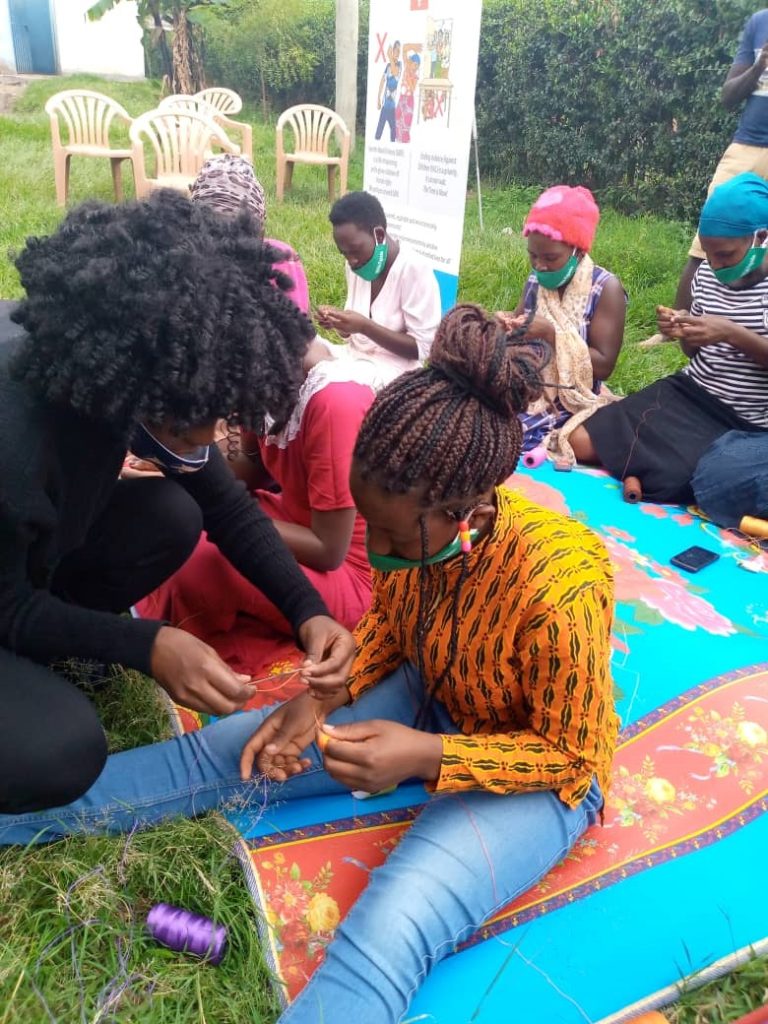
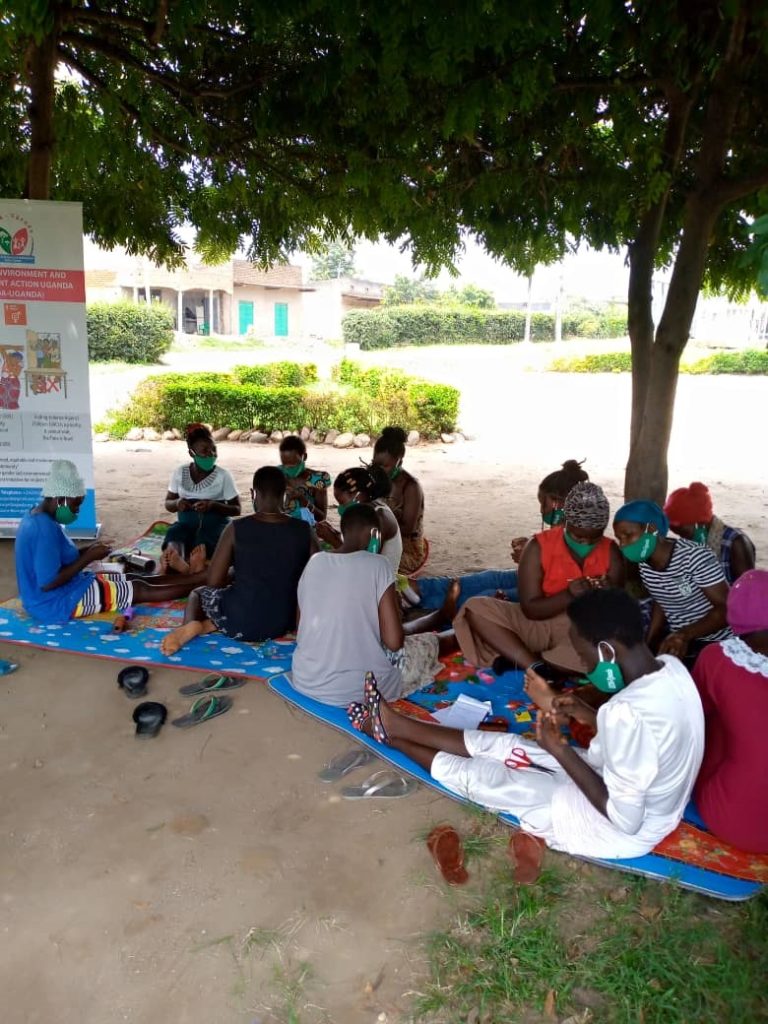

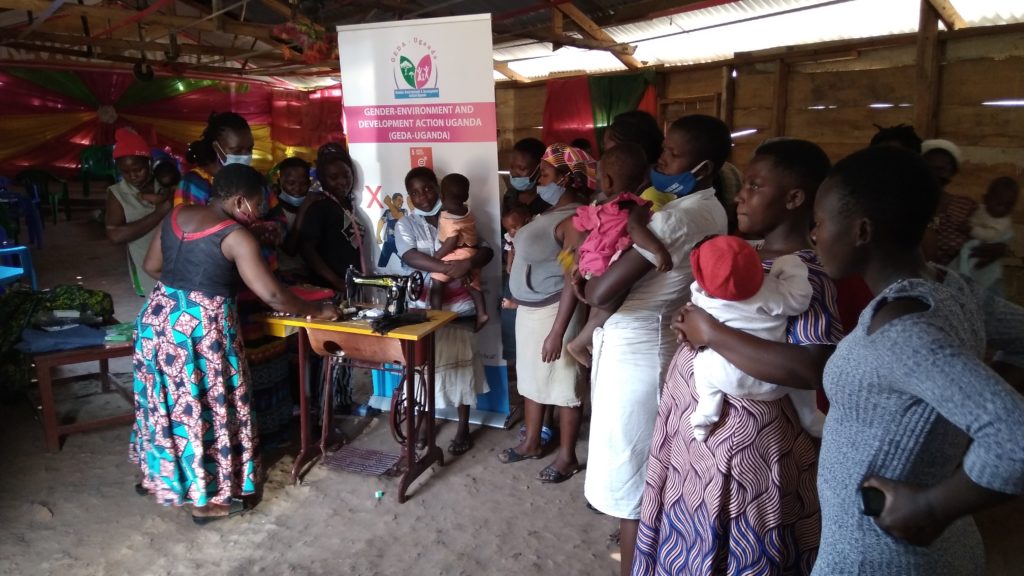
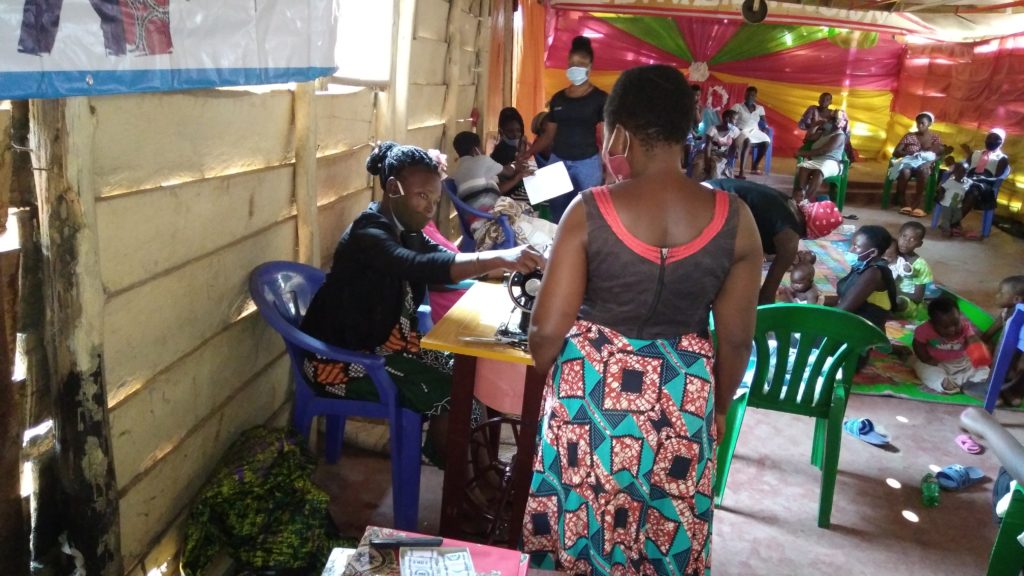 Details to come
Details to come In Uganda like elsewhere around the world, Covid-19 has led to an increase in teenage pregnancy. In order to gain basic necessities like sanitary towels, girls have engaged in negative coping mechanisms like transactional sex with men who took advantage of their need for money. Teenage pregnancies, among other factors is increasing the number of girls not in school.
In Uganda like elsewhere around the world, Covid-19 has led to an increase in teenage pregnancy. In order to gain basic necessities like sanitary towels, girls have engaged in negative coping mechanisms like transactional sex with men who took advantage of their need for money. Teenage pregnancies, among other factors is increasing the number of girls not in school.  The programme kicked off with training of 21 teenage mothers in menstrual hygiene management that focused on making of reusable sanitary pads. The 21 trainees are form from Kasese Municipal teenage mothers group that has a membership of 35 aged 14 – 20, all having babies aged 0-1 year. This is an indication that all these conceived during the lockdown. The training in making of reusable sanitary pads was conducted by Ms.Kidima Margret of GEDA Uganda in Kidodo cell, Central Division, Kasese Municipality where the group members reside. The training was practical and by the end of the training session each participant was able to make 2 reusable sanitary pads.
The programme kicked off with training of 21 teenage mothers in menstrual hygiene management that focused on making of reusable sanitary pads. The 21 trainees are form from Kasese Municipal teenage mothers group that has a membership of 35 aged 14 – 20, all having babies aged 0-1 year. This is an indication that all these conceived during the lockdown. The training in making of reusable sanitary pads was conducted by Ms.Kidima Margret of GEDA Uganda in Kidodo cell, Central Division, Kasese Municipality where the group members reside. The training was practical and by the end of the training session each participant was able to make 2 reusable sanitary pads.
 Every year, the globe commemorates the World breastfeeding week in the first week of the month of August.
Every year, the globe commemorates the World breastfeeding week in the first week of the month of August.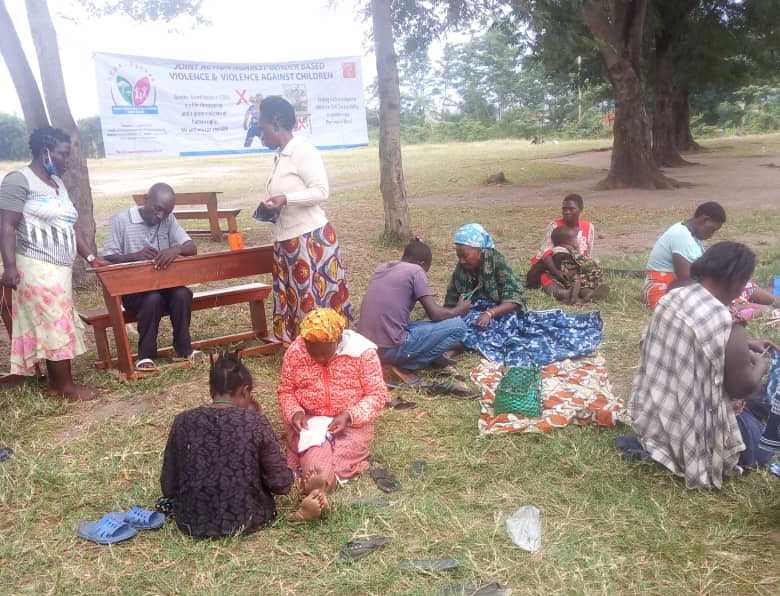



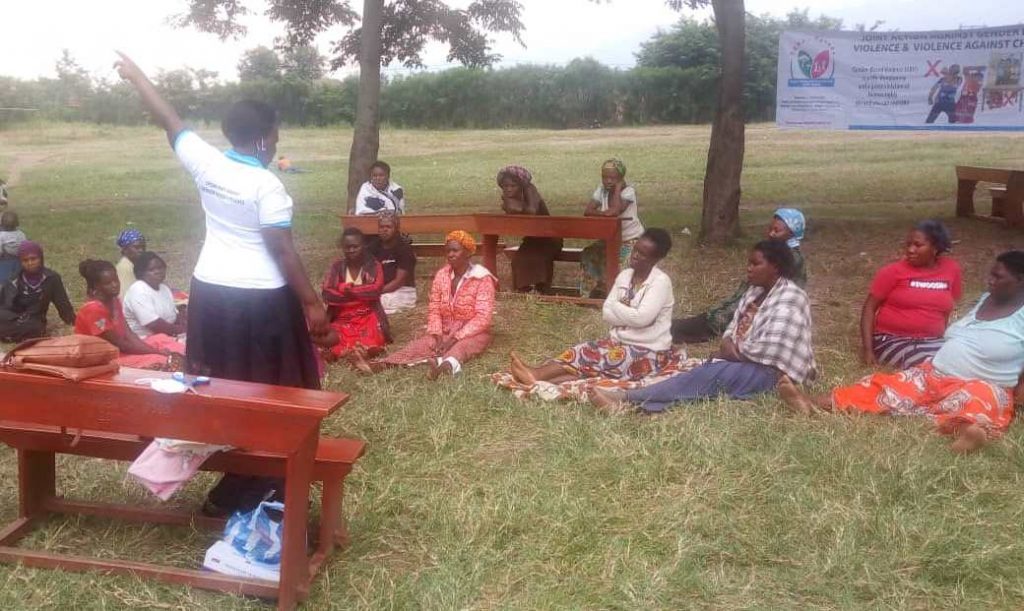
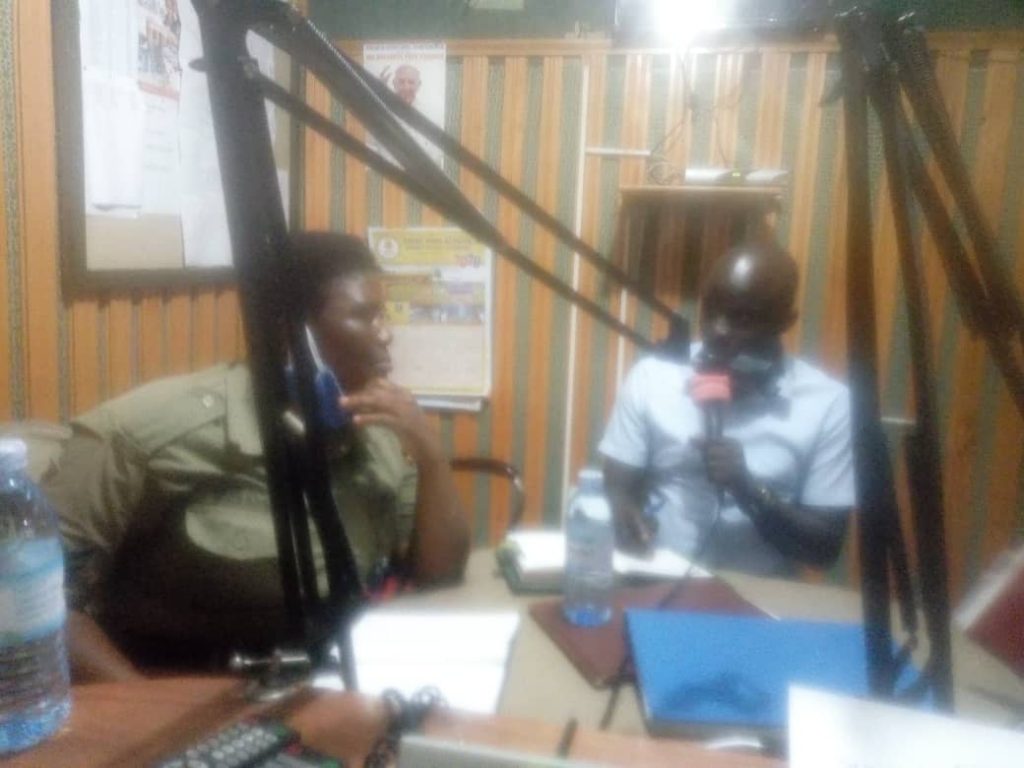 The narrative seems not to have changed either. This was revealed during a radio talk show conducted by GEDA Uganda this week about the causes, dangers and effects of early marriages. It was highlighted by the Officer in Charge (OC) child and family protection unit Kasese that poverty, domestic violence, wars or displacement, peer pressure, negative cultural beliefs, lack of essential needs like sanitary pads are the most causes of early marriages. Adverse effects of this problem has led to child mothers, poverty to their young families, stunted brain development and growth of children produced since they do not have enough and the rightful nutritious foods to feed their children on, family breakages, high infant mortality rate and other health challenges like fistula since these girls bones are not strong enough to push babies. According to statistics from Kasese Police since March 2020, 30 children have since been reported married, 24 defiled and for Isule health center in Maliba sub county, from December 2019 to March 2020 50 girls were attending antenatal care. The new vision of 13th March 2020, Government is worried that about 10 millon children may not go back to school after lockdown both boys and girls. Currently kasese has Maliba, Munkunyu, Mpondwe-Lhubiriha town council, Karambi, Hima, Karusandara, Nyakatonzi and Kilembe sub-counties leading in early child marriages.
The narrative seems not to have changed either. This was revealed during a radio talk show conducted by GEDA Uganda this week about the causes, dangers and effects of early marriages. It was highlighted by the Officer in Charge (OC) child and family protection unit Kasese that poverty, domestic violence, wars or displacement, peer pressure, negative cultural beliefs, lack of essential needs like sanitary pads are the most causes of early marriages. Adverse effects of this problem has led to child mothers, poverty to their young families, stunted brain development and growth of children produced since they do not have enough and the rightful nutritious foods to feed their children on, family breakages, high infant mortality rate and other health challenges like fistula since these girls bones are not strong enough to push babies. According to statistics from Kasese Police since March 2020, 30 children have since been reported married, 24 defiled and for Isule health center in Maliba sub county, from December 2019 to March 2020 50 girls were attending antenatal care. The new vision of 13th March 2020, Government is worried that about 10 millon children may not go back to school after lockdown both boys and girls. Currently kasese has Maliba, Munkunyu, Mpondwe-Lhubiriha town council, Karambi, Hima, Karusandara, Nyakatonzi and Kilembe sub-counties leading in early child marriages. The magnitude of the problem is big and needs efforts of every duty bearer, parents, civil society organizations, Government to curb this. GEDA Uganda is adding her small contribution to end this vice by mass awareness through radio talk shows, drama series, engaging girls and women in the make of reusable sanitary pads for sustainability purposes and avoiding temptations from the girls and women with bad coping up mechanisms.
The magnitude of the problem is big and needs efforts of every duty bearer, parents, civil society organizations, Government to curb this. GEDA Uganda is adding her small contribution to end this vice by mass awareness through radio talk shows, drama series, engaging girls and women in the make of reusable sanitary pads for sustainability purposes and avoiding temptations from the girls and women with bad coping up mechanisms.
